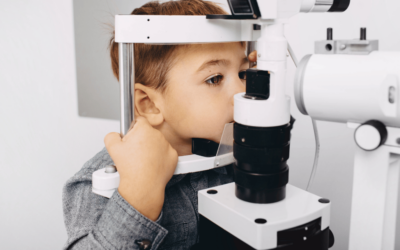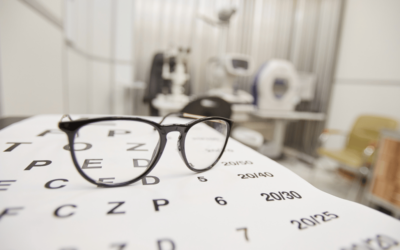April is Women’s Eye Health and Safety Month, a reminder to women everywhere to prioritize the health and safety of their eyes. Women are more susceptible to a variety of eye conditions and diseases, including dry eye disease, age-related macular degeneration, and cataracts. In this blog post, we’ll discuss the importance of women’s eye health and safety and share tips for maintaining good eye health.
The importance of women’s eye health
Women are more likely than men to develop a variety of eye conditions, including:
- Dry eye disease – Dry eye disease happens when the eyes can’t produce enough tears, or tears are of poor quality. Women are more likely to develop dry eye disease due to hormonal fluctuations, certain medications such as oral contraceptives, and makeup use.
- Age-related macular degeneration – Age-related macular degeneration (AMD) is a serious eye disease that slowly destroys central vision due to damage to the macula. The macula is the central part of the retina responsible for clear, straight-ahead vision. Women are more susceptible to AMD because they tend to live longer than men.
- Cataracts – Women are more likely than men to develop cataracts, which is a clouding of the lens of the eye. Cataracts can lead to blurred vision and difficulty with daily activities.
- Glaucoma – Glaucoma is a group of eye diseases that damage the optic nerve and cause vision loss and even blindness. Women are two to four times more likely to develop angle-closure glaucoma than men. There is no clear gender preference for open-angle glaucoma (the most common form of glaucoma).
Tips for maintaining optimal eye health
Wear protective eyewear
Wearing safety glasses when playing sports and participating in potentially hazardous activities can prevent injuries caused by flying objects or blunt trauma. If you work with hazardous chemicals or materials, make sure that you always wear protective eyewear while working to prevent any potential harm to your eyes.
Protect your eyes from the sun
It’s important to always wear sunglasses when you go outside to protect your eyes from UV rays, which can cause long-term damage to the eyes. Also, be sure to apply sunscreen around the eyelids and wear a wide-brimmed hat when spending time outdoors on sunny days.
Take regular breaks from screens
Be mindful when using digital devices such as smartphones and tablets. Staring at screens for too long can lead to eye strain, fatigue, dryness, headaches, and blurry vision. To avoid this, make sure that you take regular breaks from screens throughout the day. Try the 20-20-20 rule: every 20 minutes, look at something 20 feet away for at least 20 seconds.
Know your family history
If you have a family history of eye diseases such as glaucoma or macular degeneration, you are at a greater risk of developing these conditions. Make sure to discuss your family history of eye diseases with your optometrist so that they can understand your individual risk factors.
Eat a healthy diet
Eating right isn’t just good for your body; it’s also good for your eyes! Eating foods rich in vitamins A, C, E, zinc, and omega-3 fatty acids helps protect against macular degeneration and other age-related vision problems. Some excellent sources of these nutrients include eggs, spinach, fish, and nuts. Additionally, drinking plenty of water keeps your eyes hydrated and flushes out toxins from the body that could lead to dry eye or eye discomfort.
Get regular eye exams
Seeing an eye doctor regularly is one of the best things you can do for your eyesight. Women should have a comprehensive eye exam at least once every two years, even if they don’t have any vision problems. Many eye diseases and conditions have no symptoms in the early stages. During an eye exam, your eye doctor can detect issues early before they cause permanent damage.
In summary
By taking steps to protect your eyes and getting regular check-ups, you can reduce your risk of developing eye conditions and injuries. If you are experiencing any symptoms or have concerns about your eye health, make an appointment with our eye doctor to find the best treatment for your needs!



